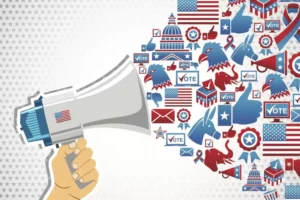Fan culture, also known as fandom, refers to communities that are formed around a shared interest or enjoyment of a particular aspect of popular culture, such as books, movies, TV shows, or music. Fandoms can be found all over the world and have been a part of popular culture for decades. The term “fandom” was first used in the 1930s to describe science fiction fan clubs that organized events and conventions. Over the years, the definition of fandom has expanded to include a wide range of interests and communities.
The evolution of fan culture has been shaped by various factors, including technological advancements and changes in popular culture. The internet has played a significant role in the growth of fan communities, allowing fans from all over the world to connect and share their interests. Social media platforms, in particular, have made it easier for fans to create and share content, as well as connect with other fans who share similar interests. The rise of streaming services has also made it easier for fans to access and consume content, leading to the growth of new fandoms and communities.
Fan culture has become a significant part of popular culture, with fandoms and fan communities playing an important role in shaping the way we consume and engage with media. Fans have become more vocal and influential in recent years, with their opinions and feedback often shaping the way media is produced and marketed. Additionally, fan culture has provided a sense of community and belonging for many individuals, particularly those who may feel marginalized or isolated in their everyday lives. Overall, fan culture continues to evolve and thrive, providing a space for individuals to connect and celebrate their shared interests.
Celebrating fandoms and the communities they create
Fan culture, or fandom, refers to communities built around a shared enjoyment of an aspect of popular culture, such as books, movies, TV shows, or music. These communities are incredibly diverse, with fans of all ages, genders, races, and backgrounds coming together to celebrate their shared interests. Fan communities can be found all around the world, and they provide a sense of belonging and connection for individuals who may feel isolated in their everyday lives. The diversity of these communities is a testament to the power of fandom to bring people together around a shared passion and create a sense of community.
Creating safe and inclusive spaces for fans is essential to the success of fan communities. Discrimination and exclusion can be major issues in fandom, and it is important to actively work to create welcoming and supportive environments for all fans. This includes listening to and amplifying marginalized voices within fandom, as well as actively working to combat harassment and discrimination. By creating safe and inclusive spaces, fan communities can become even more vibrant and welcoming places for fans to connect and celebrate their shared interests.
Fan culture has a positive impact on mental health and well-being. Being a fan allows individuals to connect with like-minded others and understand themselves better. Participating in fan communities can provide a sense of belonging and support, which can be particularly important for individuals who may feel isolated or marginalized in their everyday lives. Additionally, being a fan can help individuals meet psychological needs at various stages of adult development. Overall, fan culture is a celebration of community, connection, and shared passion, and it has the power to improve the lives of individuals around the world.
The Future of fan culture and its impact on society
Fan culture has experienced tremendous growth in recent years, with fan communities becoming increasingly influential in mainstream media. As defined by Liao, fans are individuals who have a fervent devotion to an actor, celebrity, television program, or other textual form portrayed by mass media. These communities are built around a shared enjoyment of popular culture, such as books, movies, and TV shows, and have become a force to be reckoned with in the entertainment industry. As a result, fan culture has the potential to shape the future of media and entertainment.
Fan communities have also demonstrated the potential to drive change and social justice movements. Mugisha argues that fan communities have used their power to spread information and raise awareness about social issues on a mass scale. For example, the Harry Potter Alliance, a fan community centered around the Harry Potter franchise, has been instrumental in promoting social justice causes such as LGBTQ+ rights and climate change activism. As a result, fan culture has the potential to drive positive change and make a meaningful impact on society.
However, it is important to balance passion with responsibility in fan communities. Hills emphasizes the need for fan communities to be critical and reflective, as well as to recognize their own power and influence. In the era of “Fan Rule,” fan communities have become masterfully organized groups that reflect the evolving nature of fandom. As Karkanias notes, fandom is not just about the characters and their relationships but also about the fans themselves and their relationships with each other. Therefore, it is important for fan communities to maintain a sense of responsibility and accountability as they continue to grow and evolve in the future.










